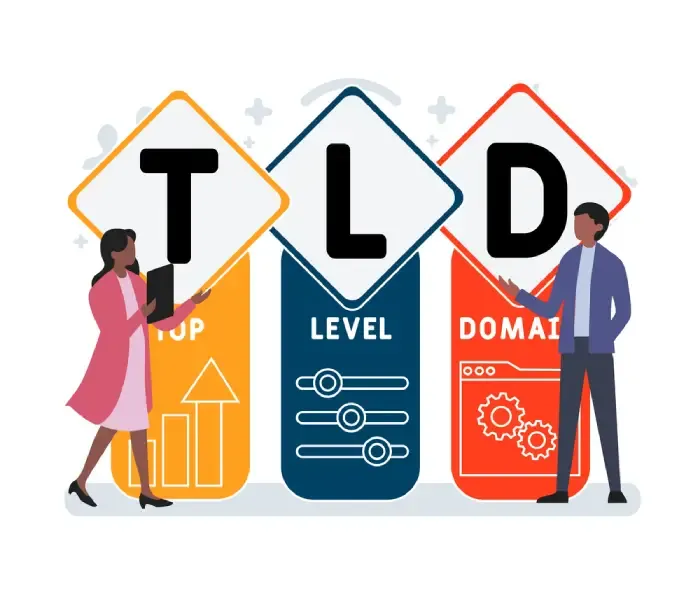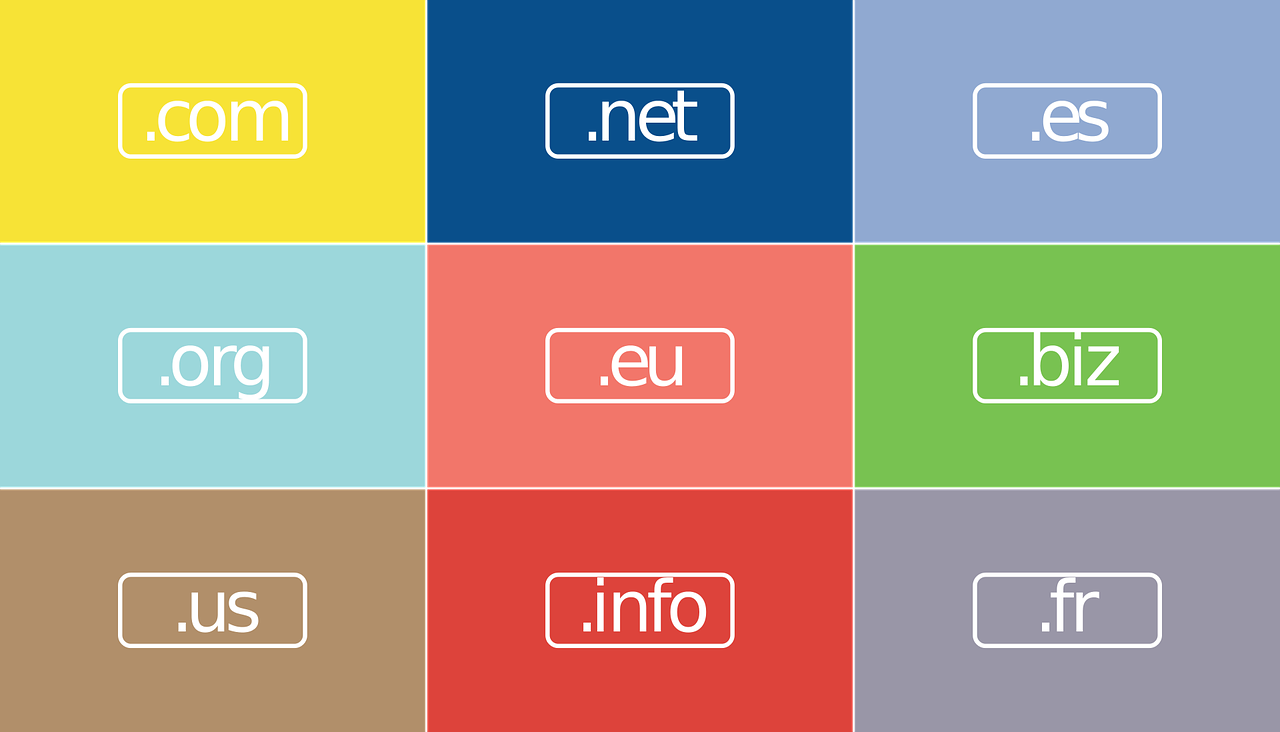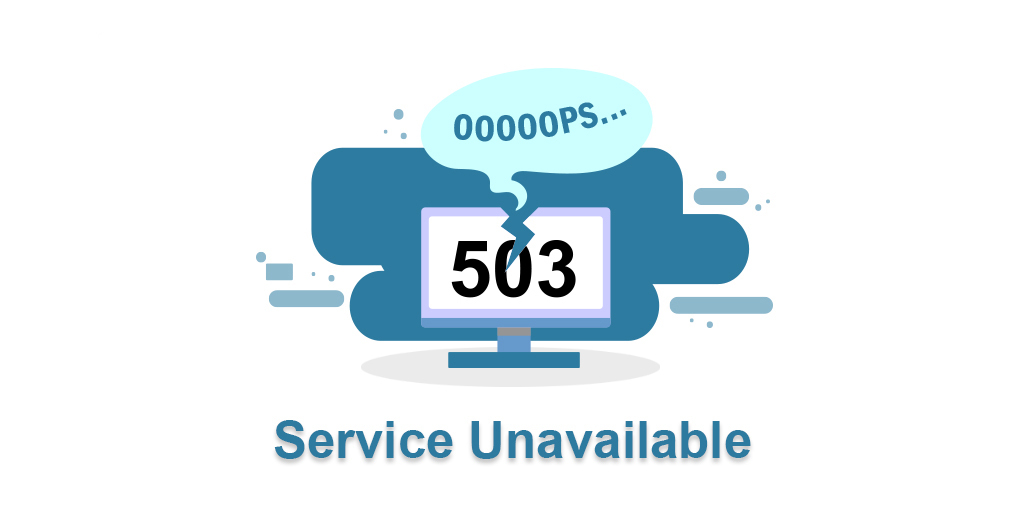Establishing a strong online presence is crucial for any business aiming to scale in the competitive marketplace. One of the first and most important decisions when setting up your online identity is choosing the right Top-Level Domain (TLD) for your business website.
A TLD is the part of a web address that appears to the right of the dot, such as .com, .net, or .org. While it may seem like a simple choice, selecting the best TLD for your business can significantly impact your online success.
Today, we'll dive into the topic of TLDs, explore their importance, and provide insights into how selecting the ideal TLD can unlock your website's potential. Whether you're a startup, an established corporation, or anything in between, understanding the significance of TLDs is the first step toward creating a memorable and successful online presence for your business.
Importance of choosing the best TLD for a business website
Selecting the perfect Top-Level Domain (TLD) for your business website can determine the success of your online presence. It should be instantly recognizable, trustworthy, and relevant to your brand.
Your website's TLD is the first point of contact between your brand and your audience. Choosing a memorable TLD, such as the popular .com or a niche-specific .store, can show trust and credibility to your visitors. Also, an unusual TLD can raise doubts or confusion, potentially driving potential customers away before they even explore your content.
Credibility and trustworthiness are two critical factors associated with certain TLDs. For instance, .gov, .edu, and .org domains have built-in credibility. Selecting a TLD that aligns with your business type – for example, .lawyer for a law firm or .tech for a tech startup – helps establish trust within your specific niche. This trust is not only essential for building relationships with your audience but also for showing your expertise in your industry.

What is a TLD?
A Top-Level Domain (TLD) is the portion of a web address located to the right of the dot, including everything from .com and .org to some less common examples. It is the highest level in the Domain Name System (DNS) and is used to categorize websites based on their purpose, location, or other characteristics.
TLDs has different variations, and understanding the differences between them can be quite beneficial for your business. The most familiar TLD is the generic TLD (gTLD), represented by familiar extensions like .com, .net, and .org. These gTLDs are widely used, and .com, in particular, is the most popular choice for businesses. Then there are country-code TLDs (ccTLDs), which are specific to particular countries or regions, such as .uk for the United Kingdom or .ca for Canada. These can be an excellent choice if you serve a local audience or want to demonstrate your business's connection to a specific region.
Additionally, there are newer, more specialized TLDs, known as new gTLDs (ngTLDs). These extensions have been introduced in recent years to add specificity to the domain name space. They include options like .app for app developers, .blog for bloggers, and .guru for experts in various fields. By selecting the right type of TLD for your business website, you can make your web address more memorable, relevant, and meaningful to your audience.

The Role of TLD in SEO
The significance of a TLD in SEO, or Search Engine Optimization, is huge. While it's not the sole reason for your website's search engine rankings, it does play a notable role. Search engines like Google take TLDs into account as one of the numerous signals used to evaluate a website's relevance to a user's search query.
For example, if your business operates in the United Kingdom, having a .uk domain (a country-code TLD) can potentially boost your SEO performance when users in the UK search for relevant products or services. Similarly, if your website focuses on mobile apps and you use a .app domain (a new gTLD), it can signal to search engines that your site is dedicated to app-related content. This connection between your TLD and your website's focus can improve your SEO and help your site appear in relevant search results.
Several case studies and examples showcase the SEO impact of TLDs. Companies that choose a TLD closely related to their niche or location often see improved search engine rankings:
Google - Google's primary domain uses the ".com" TLD, which is common for businesses worldwide. Their official website is www.google.com.
Microsoft - Microsoft also uses the ".com" TLD. Their official website is www.microsoft.com.
HubSpot - HubSpot, a marketing and sales software company, uses the ".com" TLD. Their website is www.hubspot.com.
BBC (News and Media) - The British Broadcasting Corporation (BBC) uses ".bbc" as its TLD for specific web addresses, like www.bbc.co.uk.
Museum of Modern Art (Art and Culture) - The Museum of Modern Art in New York uses ".moma" for its website, www.moma.org.

Factors to Consider When Choosing a TLD for Your Business Website
Selecting the right TLD for your business website is not a decision to be taken lightly. It can significantly impact your online presence.
Relevance to Your Brand or Industry
Your TLD should align with your brand identity and the industry you operate in. For instance, if you're in the tech sector, a ".tech" or ".io" domain might be more suitable.
Geographic Relevance
If your business caters to a specific country or region, consider using a country-code TLD (ccTLD) such as ".us" for the United States or ".uk" for the United Kingdom.
SEO Considerations
While the impact of TLDs on SEO is not huge, it's worth considering. Google's algorithms consider the TLD when ranking websites. Generic TLDs like ".com" and ".org" are preferred.
Audience
Some TLDs are associated with specific content types. ".org" is often linked to nonprofits, while ".gov" represents government entities. Make sure your chosen TLD conveys the right message to your audience.
Pros and Cons of Common TLDs
Each type of TLD has its own set of advantages and disadvantages. - .com: Pros - Universally recognized, good for global reach. Cons - Highly competitive, limited availability. - .org: Pros - Traditionally used by nonprofits and organizations. Cons - Not exclusive to these entities, may confuse some users. - .net: Pros - Originally intended for network-related sites, suitable for tech companies. Cons - Limited availability. - .io: Pros - Popular among tech startups, suggests innovation. Cons - Some users may not be familiar with it. - .co: Pros - Often used as an alternative to ".com," good availability. Cons - Might be associated with Colombia, which could be irrelevant to your business. - .biz: Pros - Intended for business use, availability is decent. Cons - Not as common as ".com."

Tips for Selecting the Best TLD
When choosing the ideal Top-Level Domain (TLD) for your business website, it's crucial to make a well-informed decision.
Research Your Options
Take the time to explore the TLD options available. Research which TLDs align with your industry, brand identity, and target audience.
Check Domain Availability Early
After thinking of potential domain names, check the availability of your preferred TLDs. If your top pick is unavailable, consider creative alternatives.
Think Long-Term
Switching domains in the future can be tricky and may affect your SEO ranking and branding efforts. You need to think long-term. Picture your business and its identity in the coming years.
Keep It Simple and Memorable
Simplicity and memorability are very important. Opt for a domain name that is short, clear, and easy to remember. Long and complex domain names are prone to typos and user confusion.
Check Legalities
Before finalizing your choice, ensure your selected domain name doesn't infringe on trademarks or copyrights held by others. Engaging in domain disputes or potential legal issues can be costly and time-consuming.
Recommendations for TLDs based on Business Type
Selecting the most suitable Top-Level Domain (TLD) for your business is like choosing the perfect location for a physical store. The right TLD enhances your online identity, boosts credibility, and helps potential customers find you more easily.
For E-commerce Businesses: .STORE
E-commerce businesses can opt for a ".store" TLD. It's clear, concise, and instantly communicates the purpose of your website. Shoppers will immediately recognize your site as a place to explore and buy products.
For Tech Startups: .IO
Tech startups aiming to highlight their innovative and tech-savvy nature may find ".io" an excellent choice. It's often associated with technology, making it an great selection for this category.
For Creative Agencies: .DESIGN or .CREATIVE
Creative agencies can use ".design" or ".creative" TLDs to showcase their artistic and creatice nature. It's a fantastic way to express your agency's flair and the imaginative services you provide.
For Nonprofits: .ORG
Nonprofits, charities, and organizations dedicated to social causes often opt for ".org" domains. This TLD showcases your commitment to a cause and can encourage trust among donors and supporters.
For Educational Institutions: .EDU
Educational institutions, including schools and universities, frequently use ".edu" domains. These domains are reserved for legitimate educational entities and can show credibility and trust.
For Online Publications: .NEWS or .BLOG
Online publications, blogs, or news sites can choose ".news" or ".blog" TLDs to reflect their content. These TLDs immediately show what readers can expect.
Conclusion
Top-Level Domains (TLDs) for your business website play a key role in your online identity, influencing how potential customers will see your brand, and affecting your website's visibility in search engines.
Whether you're launching a new business website or rebranding an existing one, taking the time to choose the most suitable TLD is an investment in your online business. It's part of your brand identity and can significantly influence how customers engage with your business.
What is a TLD, and why does it matter for my business website?
A TLD, or Top-Level Domain, is the part of a domain name that comes after the last dot (e.g., .com, .net, .org). It matters because it plays a key part of your website's web address.
How do I choose the right TLD for my business?
The choice of TLD depends on your business type and goals. Consider factors like your target audience, industry, and location.
Are some TLDs better for SEO than others?
While TLDs themselves don't directly affect SEO, they can indirectly impact your website's ranking. Google considers content and user experience as top-ranking factors. However, users often trust and remember .com domains more, which can improve click-through rates.
Is it essential to match my TLD with my brand name?
It's not mandatory, but it's a good practice. Matching your TLD with your brand name creates a consistent and memorable online identity. If your brand name isn't available with a popular TLD like .com, consider alternatives that align with your brand.

Nadejda Milanova
An experienced Content creator in the field of Search Engine Optimization (SEO) and WordPress. A true proffesional with a Master's degree focused on journalism.
Read more by Nadejda Milanova





